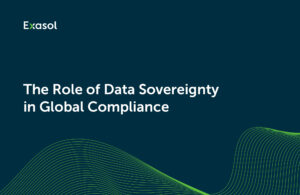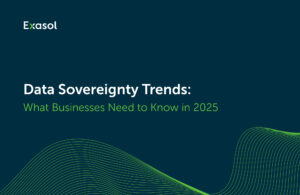
How a lack of data strategy is killing ROI
Businesses in all sectors are facing challenges associated with their growing data volumes, variety, veracity, and velocity, which hinder their ability to realise the value of their data.
Against this backdrop, prioritising time and resources towards developing a robust data strategy is one of the smartest data investments any organisation can make. Not only does a well-thought-out plan to create value from data assets through a set of available resources – i.e., data, people, process and technology – help alleviate symptoms of operational pain, it will set your team on the right path to achieving meaningful business outcomes.
What’s the risk of ignoring data strategy?
Without a well-defined data strategy, you’re inviting chaos and increasing the likelihood that people within your business won’t have the useful data they need to excel in their roles. You’re also putting your organisation at a competitive disadvantage. In the absence of a clear data strategy, aligned to business objectives, organisations can fall into the trap of focusing solely on today’s tactical challenges, rather than thinking about what more they could do with data in future. Instead of leading your market and thriving, you could be reduced to reacting and surviving.
And yet Cognopia’s recent State of Data Maturity Report suggests more than two-thirds of firms still do not have a data strategy in place. As the customer success data strategy leader at Exasol, it’s my mission to challenge these mindsets and in this blog, I’ll be making the case for why businesses need a data strategy and spotlighting the risks of doing nothing.
Why data strategy is crucial in a real-time economy
Thanks to companies like Netflix and Uber, consumers have got used to getting what they want, when they want it. The real-time economy has raised the customer experience bar to a new high standard that all brands must now reach if they are to remain competitive.
While consumer demand for instant gratification intensifies, companies are simultaneously grappling with more customer data than ever before — with IDC forecasting that data volumes will almost double in size from 2022 to 2026.
As businesses move forward in this real-time economy, fortifying their data strategy is more important than ever because customers don’t conform to a one-size-fits-all approach.
When it comes to delivering meaningful digital customer experiences, your data strategy can guide you on the right tools you need to properly handle and make sense of your data. For example, you can leverage advanced analytical capabilities to greatly enhance decision-making processes and help recommendations for powerful customer experiences that drive brand loyalty and earn consumer trust.
A clear data strategy will avoid your approach being disjointed and make sure data is being managed and used as an asset, with business-wide processes, practices, and common and repeatable methods.
Mass decentralisation of IT is an opportunity for data entrepreneurialism
People must also be at the heart of every data strategy because the most powerful results happen when the whole organisation is involved in driving the strategy forward.
Historically, data has been owned and controlled by the IT domain. That has seen database engineers become fixated on solving narrow technical challenges, usually to do with performance around past ingestion and queries. Focused on their own problems, they don’t necessarily have the oversight of all the other things their business might need.
However, more recently the overall analytics market is shifting to mass decentralisation of IT. Business users are increasingly owning their own technology decisions and have the power to test data with the tools of their choice.
Data product interfaces are also becoming increasingly easy to use. This means we’re rapidly heading towards a landscape where business users who don’t know code are able to develop data systems with less reliance on data engineers.
This is a great step forward for data entrepreneurialism and data democratization… but if left unguided by data strategy, it can quickly lead to skill and data siloes. There’s also the natural tendency for different pockets of work to be going on that aren’t strategically aligned with the needs of the business.
Left to their own devices, untrained internal stakeholders will often jump straight into tactical requirements instead of taking a step back to think about what they’re trying to achieve. A good data strategy will empower teams with a combination of the technical skills needed to understand the data, and the softer people skills to blend business and technical requirements into action plans that work for everyone involved.
Data strategy and the art of the possible
Whether it’s a database engineer or a non-technical data user, many of the systemic challenges businesses have with data start from the fact that people don’t know what they don’t know.
A good data strategy upskills everyone on the art of what’s possible. It breaks down data barriers. It empowers people to think bigger. It underpins the success of your business strategy. Taking this strategic approach helps start meaningful conversations and build relationships with data consumers at the point they’re still solving problems. It will add value and open-up insight into what’s happening in the organisation, as well as helping to shape the best solution and deliver outcomes that directly support the business’ objectives.
Organisations’ lack of data strategy is a void I’m passionate about trying to fill in my role. The power of aligned data, people, process, and technology is the holy grail of ROI and the key to using data to deliver whatever outcomes you’re looking to drive — be it increasing revenue, reducing costs or operational risks, achieving regulatory compliance or delivering better customer experiences. It’s time to get strategic about your data.





